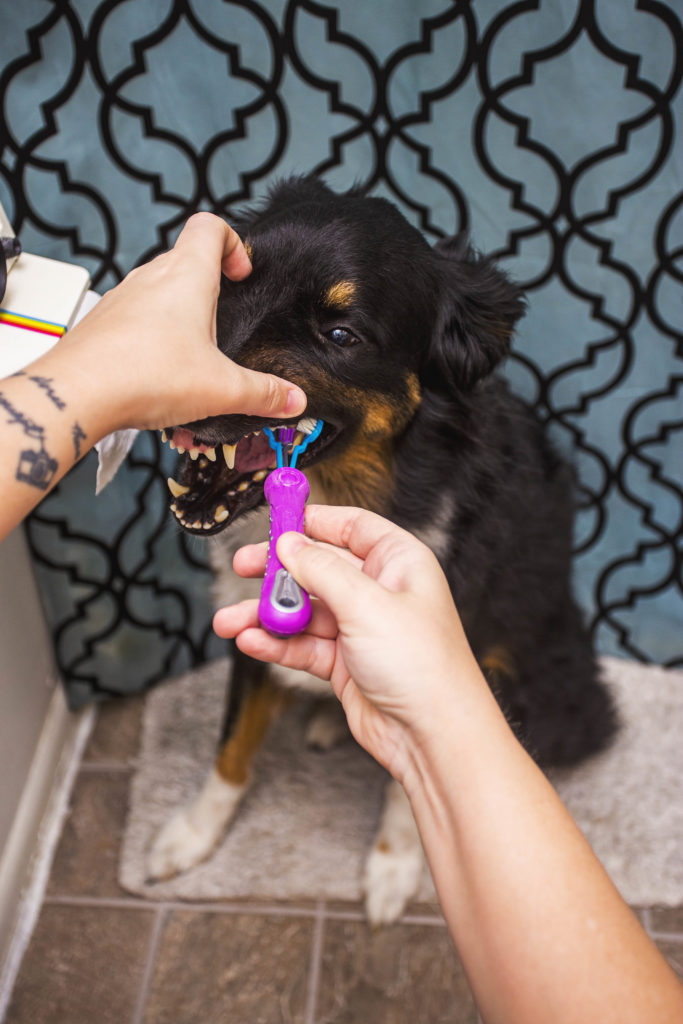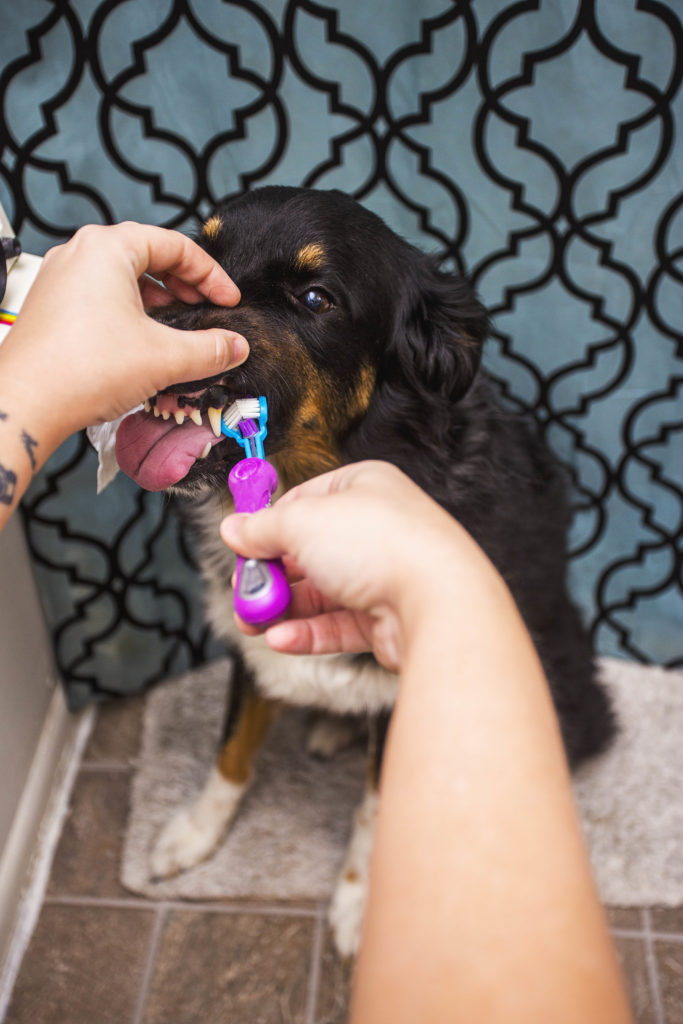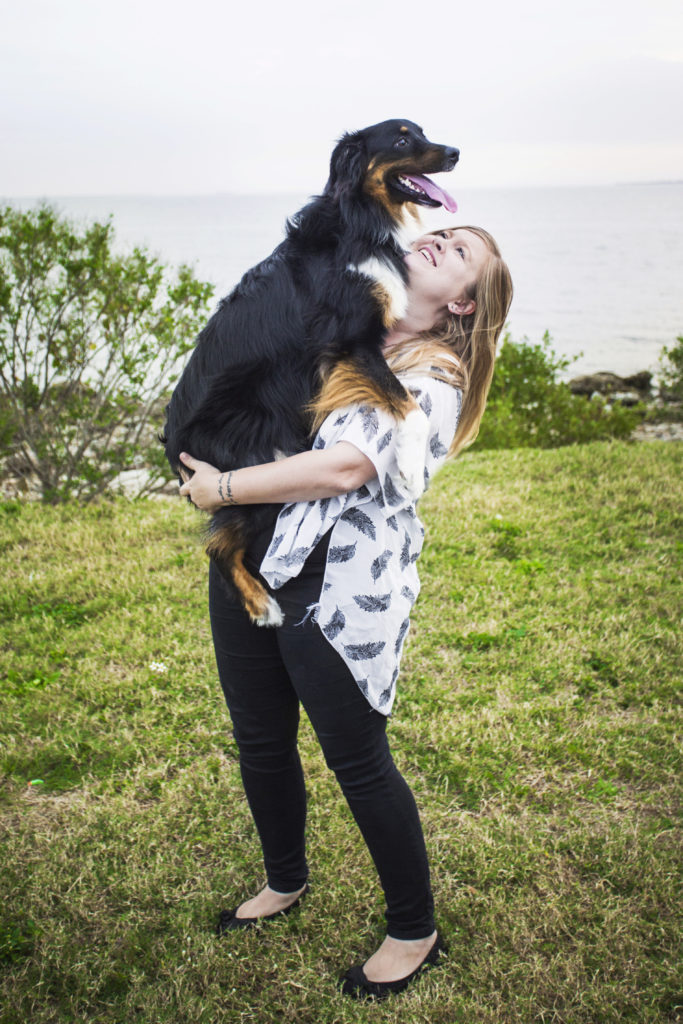5 Tips for your Doggo’s Oral Health
June 10, 2020

Taking care of your pup’s teeth is an important part of raising a happy healthy doggo. Just like humans, a dog’s dental health is important not only for the teeth, but unhealthy dental hygiene can lead to more serious conditions, including damage to the heart, lungs and kidneys. Gum inflammation and tooth loss can be very painful for your doggo and expensive to treat. No one wants that. Below we have 5 tips for keeping your pup’s oral health in check from puppies to senior doggos.
![]()
 Tip #1 Brush those Teeth
Tip #1 Brush those Teeth
Brushing your pup’s teeth should be started at a young age so they get used to you touching their face and the sensation of the brushing. Remember to only use dog toothpaste and never use people toothpaste. There are several different types of toothbrushes and you can try them out to see what works best for you and your dog. Check out some options here: Toothbrushes.
Tip #2 Dry Food vs Wet Food
Dry food is better for your pups teeth especially if you aren’t able to brush their teeth. Wet food has the tendency to stick to the teeth and gums if there isn’t dry food to help knock it off. If the food sticks to the teeth this can cause decay.
Tip #3 Bones and Treats for Oral Health
There are many options now of treats/bones that helps with cleaning your dog’s teeth. They are specifically formulated to strengthen teeth and gums. This also helps with preventing/getting rid of build up of plaque on their teeth. Check out these dental chew treats.
Tip #4 When to See a Veterinarian
If you are taking your pup in for regular vet visits then their oral health is probably being checked up during that time but in between, if you notice any of the signs below you may want to consult a veterinarian.
- Bad breath
- Change in eating or dog chewing habits
- Pawing at the face or mouth
- Depression
- Excessive drooling
- Misaligned or missing teeth
- Discolored, broken, missing or crooked teeth
- Red, swollen, painful or bleeding gums
- Yellowish-brown tartar crust along the gum line
- Bumps or growths within the mouth
Tip #5 Professional Dental Cleaning
Sometimes, especially as they age, plaque builds up no matter what you do. Professional dental cleanings for dogs are usually done with the dog under anesthesia. This is so that the procedure can be done thoroughly and the most comfortably for your pet. There could be some concerns with this as a dog ages or has other underlying medical issues and this can all be discussed with your veterinarian before a procedure is scheduled.
![]()
We hope you have a fantastic week. Stay Safe, Live, Love, and Pet all the animals!
Love,
Jess & Lily

Add a comment
0 Comments